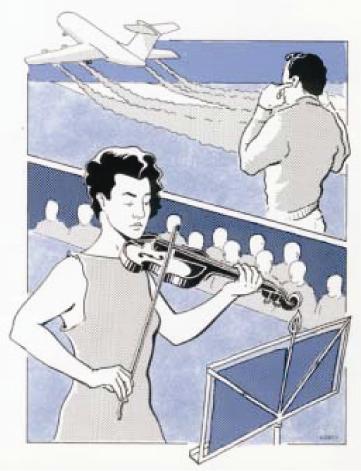|
Sound is such a common part of everyday life that we rarely appreciate all of its functions. It provides enjoyable experiences such as listening to music or to the singing of birds. It enables spoken communication with family and friends. It can alert or warn us -- for example with the ringing of a telephone, or a wailing siren. Sound also permits us to make quality evaluations and diagnoses -- the chattering valves of a car, a squeaking wheel, or a heart murmur.
Yet, too often in our modern society, sound annoys us. Many sounds are unpleasant or unwanted -- these are called noise. However, the level of annoyance depends not only on the quality of the sound, but also our attitude towards it. The sound of his new jet aircraft taking off may be music to the ears of the design engineer, but will be ear-splitting agony for the people living near the end of the runway. But sound doesn't need to be loud to annoy. A creaking floor, a scratch on a record, or a dripping tap can be just as annoying as loud thunder.
Worst of all, sound can damage and destroy. A sonic boom can shatter windows and shake plaster off walls. But the most unfortunate case is when sound damages the delicate mechanism designed to receive it -- the human ear. (from Bruel & Kjar) |
 |